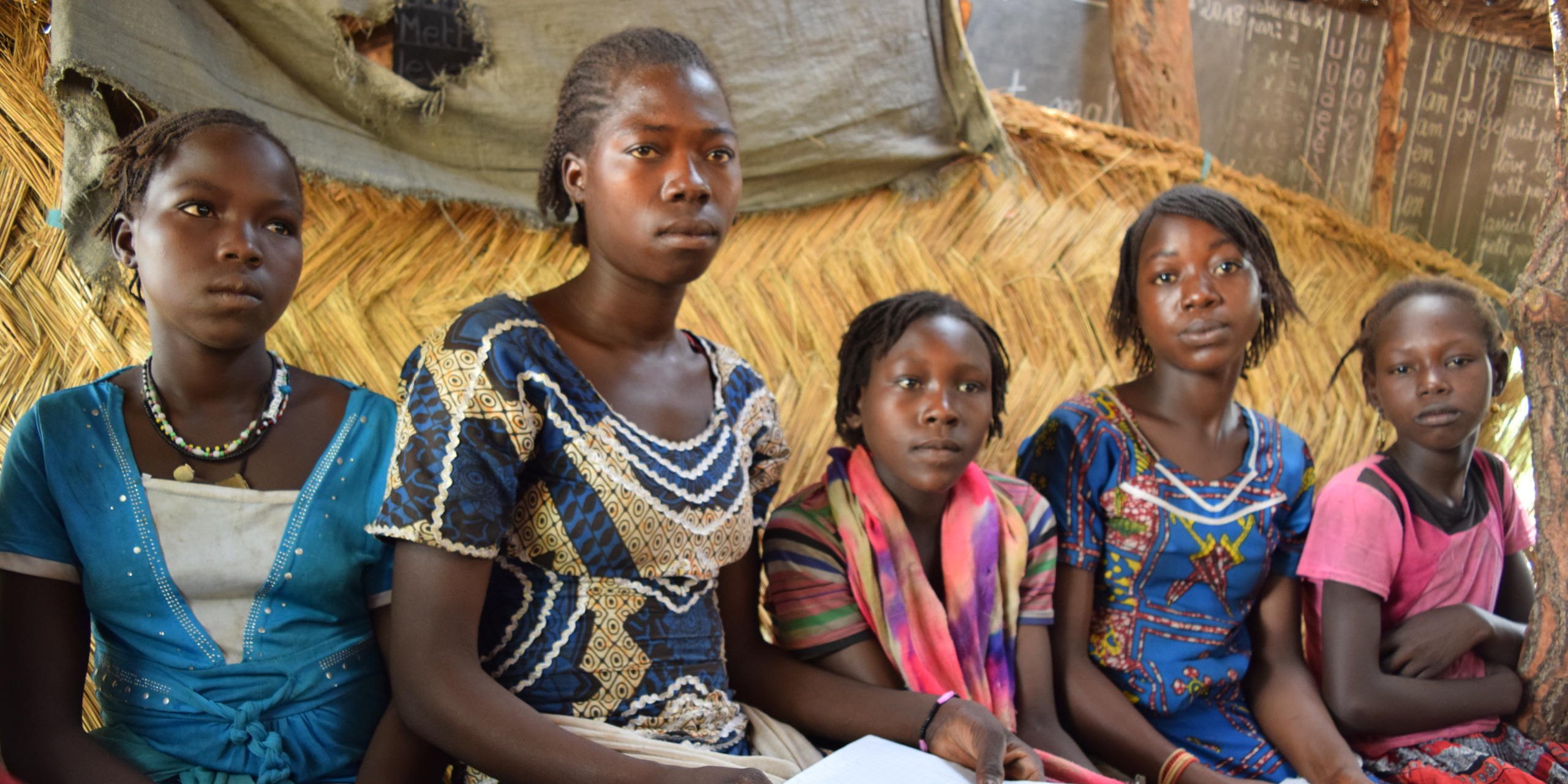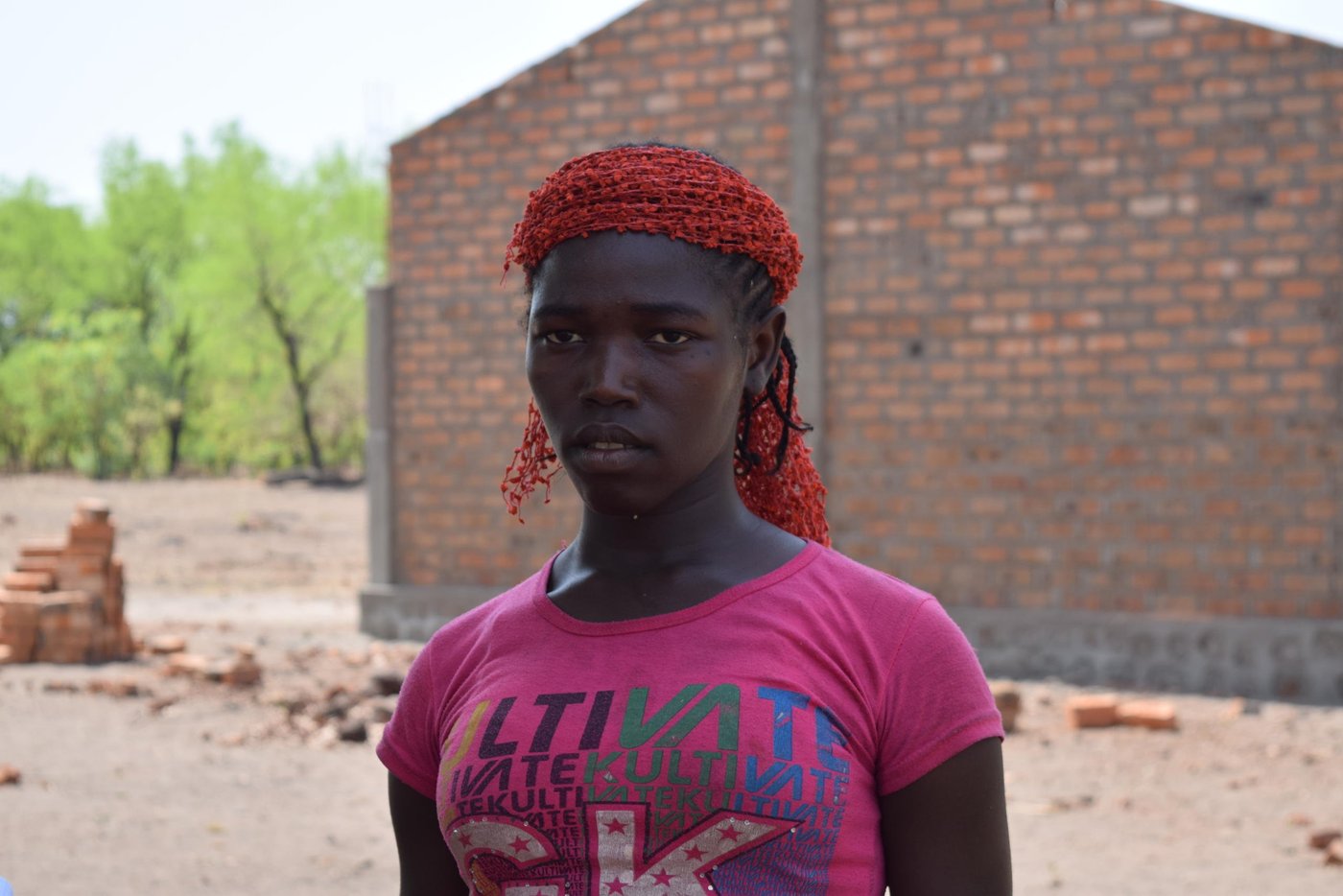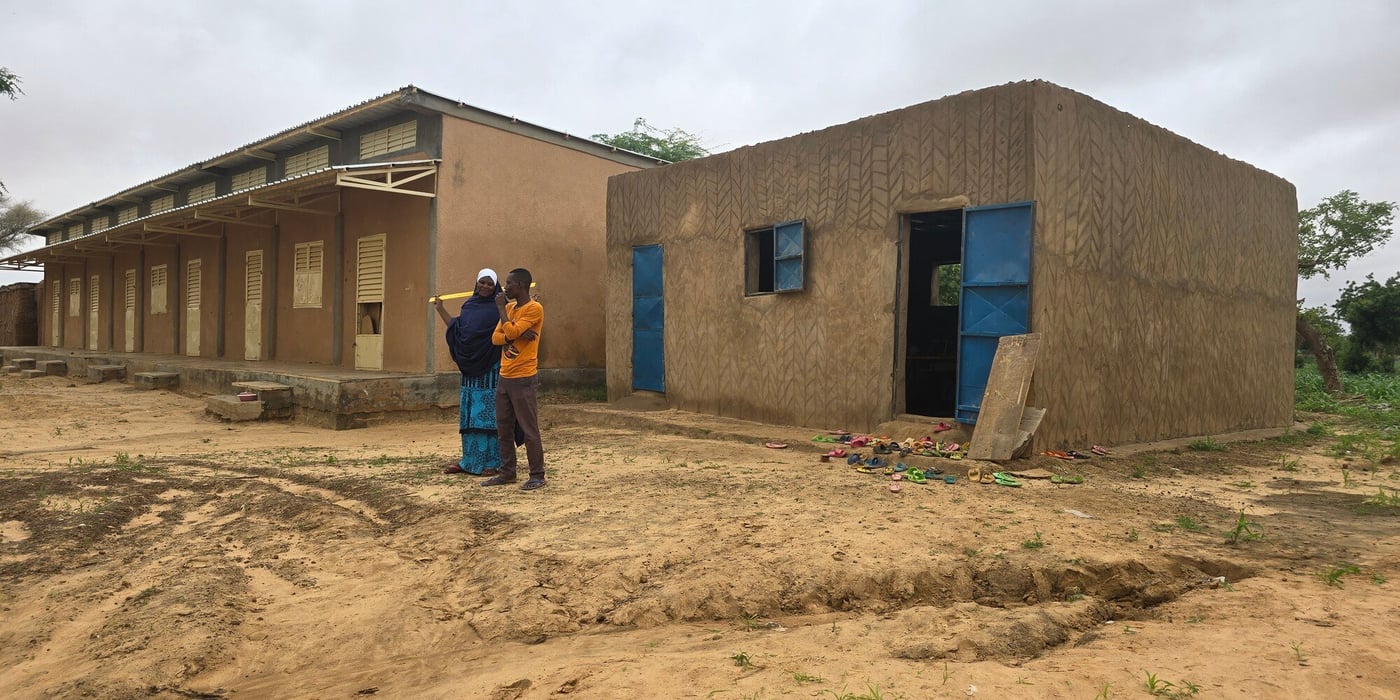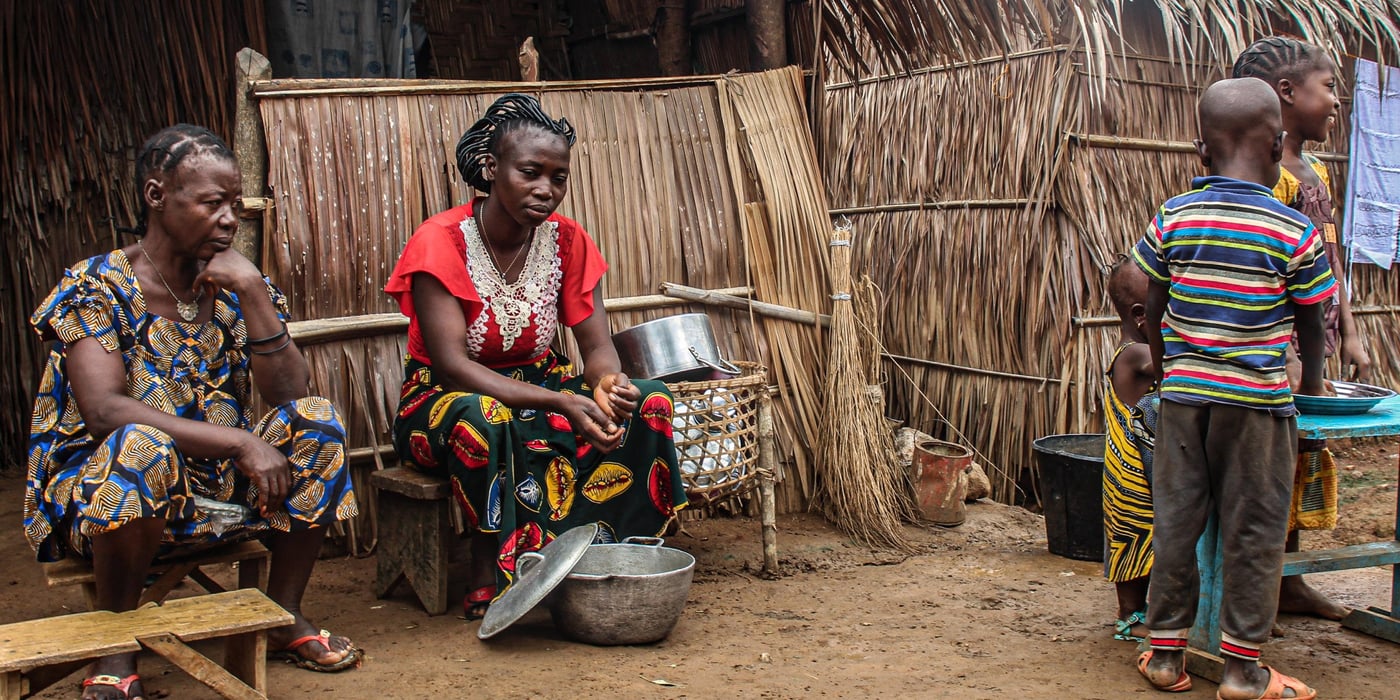
In the northern locality of Bamingui-Bangoran in Central African Republic (CAR), early marriage is common and often leads to female students dropping out of school. In CAR, 68 per cent of girls are married before the age of 18, according to UNICEF.
Kadidja chose the classroom. “I like coming to school and learning. It helps me to be more independent,” Kadidja says.
Despite her age, Kadidja is only in the second year of primary school. Several years of conflict have decimated the education system in CAR, causing both female and male students to lose several years of schooling. Today, many villages still do not have schools, and when they do, classrooms are overcrowded, lack teaching material, and the lessons are given by parents-turned-teachers.
Many of Kadidja’s classmates, who are also married, have children. Kadidja does not have children yet, but she is confident that she could juggle both student and mother roles. However, she fears that her parents would prevent her from studying. “I would like to keep coming to school, but I know that my parents will try to discourage me from continuing.”
In fact, in the schools we run, we found that once girls reach 13 years of age, their school attendance rates decline by up to 70 percent.
Difficult teaching conditions
Before the year 2000, there was no school in Kadidja’s village. Abtraman, a resident of Bamingui Bangoran who had just returned after studying in other cities, decided that it needed to change and opened the first school. “Upon my return, I noticed that children were staying at home all day, so I decided that it was time to do something about it.” The school, made up of three classrooms and built with straw, currently hosts 225 students, aged 6 to 14. Our team is currently completing the construction of a new school in the village, so that more students can attend school.
Through UNICEF funds, we have trained professional teachers and parents in teaching roles and distributed school kits to students. Additionally, we have organised information sessions to educate parents about the importance of keeping their children enrolled in school.
The results are already visible. Following these information sessions, the attendance rate increased, especially among girls. “More girls are attending school, which would have been unthinkable only a few months ago,” says Abtraman.
An investment for the future
Amani,13, could have been among the married girls, but her father refused a proposal by someone to marry his daughter after he had attended one of the information sessions we sponsored.
“Luckily, my father refused the marriage proposal. Until it happens, I intend to pursue my education,” says Amani, who would like to work in the sector of healthcare.
“I would like to become a midwife and help pregnant women give birth in my village,” she adds. Today, there are no health facilities in Amani’s village.
In a country where access to basic services is limited, educated girls can take on new roles and jobs that could benefit entire communities, even in the most remote areas.





